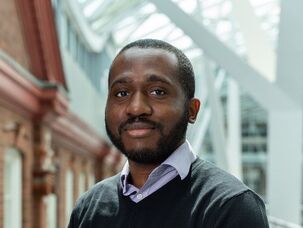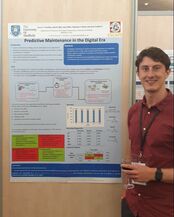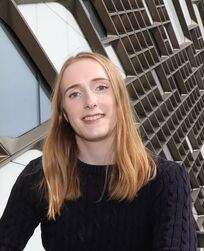Dr Solomon F. BrownSol is Professor of Process and Energy Systems in the Department of Chemical and Biological Engineering at The University of Sheffield. He is the Director of the EPSRC's CDT in Energy Storage and its Applications and leads the Brown Group at TUOS with ongoing projects funded by the EPSRC, BEIS, DASA, RAEng, the EC and Industry.
His research focusses on mathematical modelling, process analysis and optimisation with a particular focus on clean energy processes, energy storage and energy systems. Key areas include:
|
Post-doctoral Researchers
|
Dr Peter Bugryniec
Research Associate Energy Storage | Battery Safety Dr Timothy Hutty
Research Associate Energy Storage | Energy Systems |
Dr Mathew Dennis Wilkes
Research Fellow in Clean Energy CCUS | BECCS | Process Modelling Dr Min Tao
Research Associate Mathematician | Statistical Analysis |
Dr Diarmid Roberts
Research Associate Energy Storage | Techno-economics| Energy Systems Daniel Williams
Research Associate Experimentalist | Energy Storage |
Dr Robert Milton
Research Associate Mathematician | Statistical Analysis |
PhD Researchers
|
Thomas Cowley
PhD Student Process Modelling | Energy Systems Yeysel Yildiz
PhD Student Numerical Modelling | Optimisation |
Oludayo Asuni
PhD Student Process Modelling | BECCS Jack Gower
PhD Student Energy Market Modelling | Energy Systems |
Joseph Hammond
PhD Student Process Modelling | Energy Systems Ioanna Kalospyrou
PhD Student Energy Market Modelling | Energy Systems |
Alumni Members
|
Jude Ejeh joined us as part of the Energy Open Piazza – Power Forward Challenge project, he works on developing optimisation models for electrical energy systems. This involves and extends to models for optimal scheduling of electrical energy storage devices for efficient integration of renewable energy sources – solar and wind, energy arbitrage, balancing mechanism services and other energy services for behind-the-meter and front-of-meter applications. It further covers the use of static electrical energy storage devices as well as the optimal scheduling of electric vehicle charging/discharging for vehicle-to-home (V2H) and vehicle-to-grid (V2G) applications. He also has experience in developing techno-economic optimisation models for process systems, with emphasis on multi-floor process plant layout configurations; in research relating to obtaining fuels from plastic wastes, as an intern in a Petroleum refining company and a Nuclear research laboratory. His current research interests lie in operations research (OR) applications to energy systems and supply chains.
Google Scholar |
|
Rachel Lee’s research is aimed at combining technical analysis of vehicle-to-grid (V2G) systems with a human behaviour model in order to move from current ‘technically feasible’ to more realistic “practically achievable” volumes of V2G response. The work employs an agent-based simulation using the ‘consumat’ behaviour model to first establish the growth in electric vehicle deployment and then the uptake of V2G contracts. Data from the National Travel Survey is used to model journeys and locations of vehicles so that the availability of V2G connection points at different locations can be considered within the analysis.
|
|
Aaron Yeardley's research interests include applying data analytics and machine learning to help engineering issues. During his PhD, Aaron used Robert Milton's novel ROMCOMMA Python Package to apply Gaussian Processes as a surrogate model to help other researchers with sensitivity analysis and forecasting capabilities to build accurate computational models. Currently, Aaron uses his solid mathematical skills as a Senior Carbon Reduction Engineer, working with many businesses to calculate their baseline emissions. Then, data analytics is used to present the carbon hotspots and promote reduction opportunities to the client. In the future, Aaron would love to combine his work in applying machine learning models to help the environment. In particular, the future could apply digital twin optimisation to create a circular economy and energy synergies between partnering manufacturing facilities.
|
|
Flora Biggins' research looks at how energy storage can be utilised to generate value in different integration scenarios. Case studies have explored locational effects of co-locating battery storage with solar, optimising bidding strategies in competitive energy markets and community storage partially accessed by a value-maximising aggregator. Ongoing work includes developing a model for a wind-based hydrogen electrolysis and applying a real-options approach to energy storage projects.
|


























